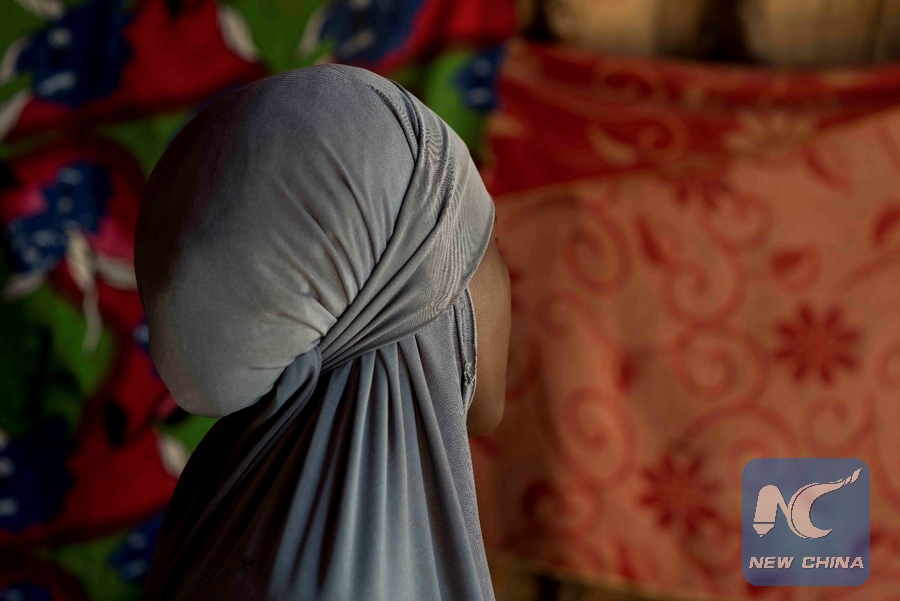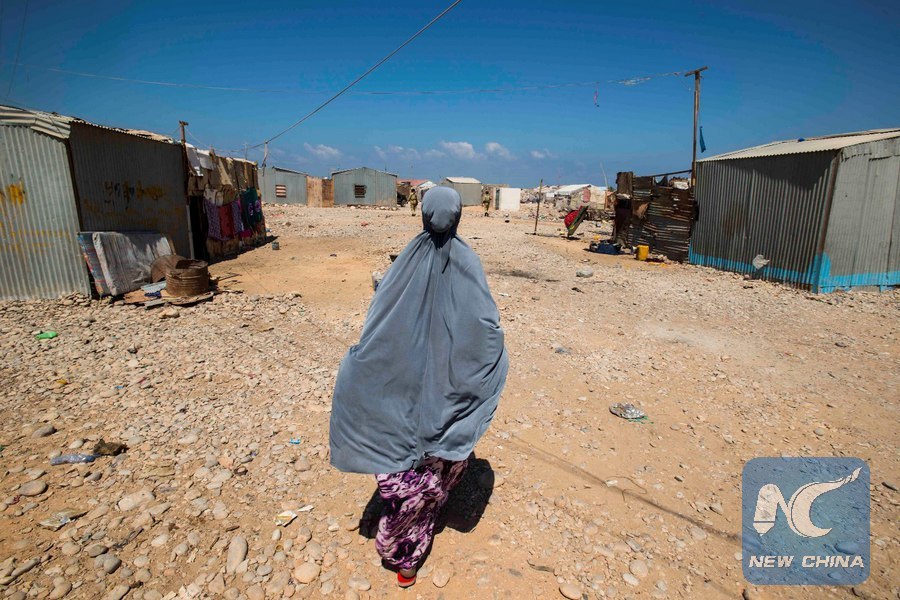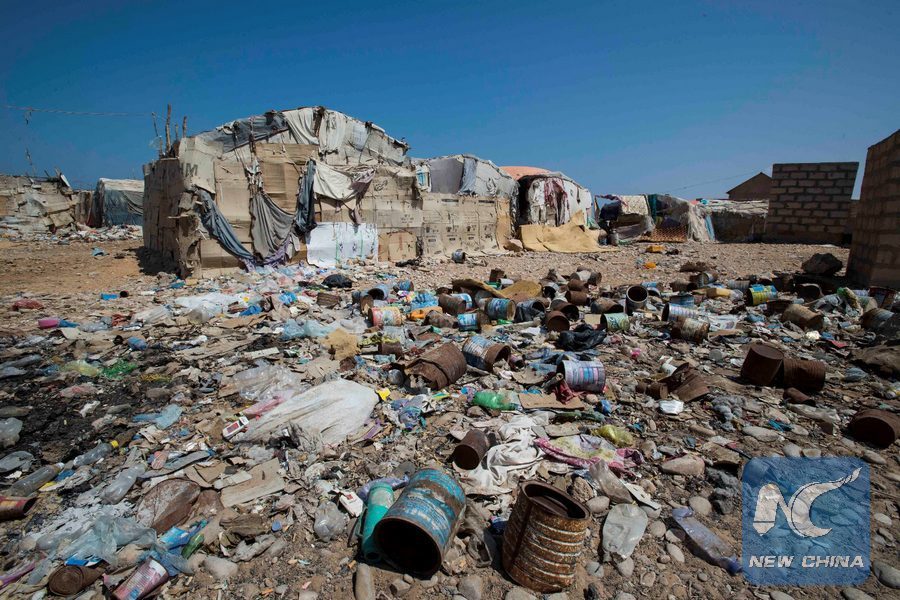
Khadija Omar Hasan, 25, a resident of Bulamugis camp for the internally displaced persons, in Bosaso, Puntland.(UNICEF Somalia/Sebastian Rich)
MOGADISHU, Jan. 26 (Xinhua) -- Photos provided by UNICEF Somalia offer a rare glimpse into the harsh conditions that women living in internally displaced camps in Somalia often face. These include the heavy burden of raising multiple kids, unstable income, and sometimes sexual violence. But despite all these hardships, they still hold optimism in the future.
Following the story of Fatuma published on Jan. 19 (http://xhne.ws/BNYAf), this time is the story of Khadija Omar Hasan, who is another resident of Bulamugis camp for the internallydisplaced persons in Bosaso, Puntland. The story is provided by UNICEF Somalia, and authorized for publication on Xinhua's website.
Khadija Omar Hasan, 25, mother of four, is another resident of Bulamugis camp for the internally displaced persons in Bosaso, Puntland. In January 2016, she was attacked and raped outside town while collecting firewood.
 Khadija's hand was wounded when she tried to grab the knife from her attacker. She was overpowered, pushed to the ground then lost her consciousness. Hours later, she was found by a neighbour and brought back to the camp with a truck. (UNICEF Somalia/Sebastian Rich)
Khadija's hand was wounded when she tried to grab the knife from her attacker. She was overpowered, pushed to the ground then lost her consciousness. Hours later, she was found by a neighbour and brought back to the camp with a truck. (UNICEF Somalia/Sebastian Rich)
"Suddenly I was grabbed from behind," she recalls. "The man had a knife. I tried to resist and grabbed the knife with my bare hand. He pushed me to the ground then I lost consciousness after that."
Some hours later, Khadija - raped and wounded - was found by a neighbour. Unable to walk, she had to be brought back home with a truck. Her case was immediately brought to the attention of TASS, an NGO partner of UNICEF specialized in responding to rape and other gender-based violence cases. Khadija was provided with a PEP (Post Exposure Preventive) kit and taken to the hospital.

Khadija walks in her neighbourhood. Bulamugis camp for the internally displaced persons in Bosaso, Puntland, is home to nearly 900 families. Like many IDP camps in Somalia, women here are particularly vulnerable to gender-based violence. According to the caseworkers working in the camp, wife-beating is quite common, and also rape especially when women go outside to look for firewood. (UNICEF Somalia/Sebastian Rich)
In the ensuing months, Khadija received continued support from TASS, including counselling, medical treatment and one-month worth of food for her family. Thanks to awareness raising done by TASS, she has suffered no discrimination from her neighbours.
Khadija has recovered well, apart from losing part of the mobility of her hand. She is now looking forward to opening a kiosk, again with the support of TASS.

Bulamugis camp for the internally displaced persons. Bosaso, Puntland. (UNICEF Somalia/Sebastian Rich)
Zainab Elmi Abdi is a caseworker from TASS. "Every month there are five to 10 GBV cases that come to us. Most of them are wife-beating. There are also rape, which happens especially when women go outside the camp."
According to Zainab, in the past, rape victims like Khadija would get no support - medical or psychological. Most cases were settled quietly by the elders, and the perpertrators went unpunished.
"Now we are helping change this. In addition to medical, psychosocial and livelihood support, we are helping the victims seek justice - not through closed-door mediation but through legal procedures."

Zainab Elmi Abdi is a caseworker from TASS. "Every month there are five to 10 GBV cases that come to us. Most of them are wife-beating. There are also rape, which happens especially when women go outside the camp. In addition to medical, psychosocial and livelihood support, we are helping the victims seek justice - not through closed-door mediation but through legal procedures." (UNICEF Somalia/Sebastian Rich)

